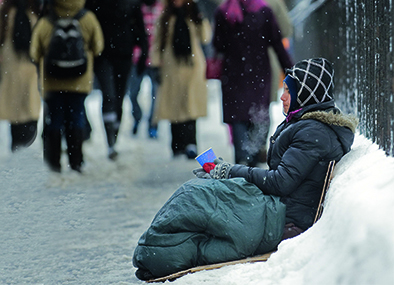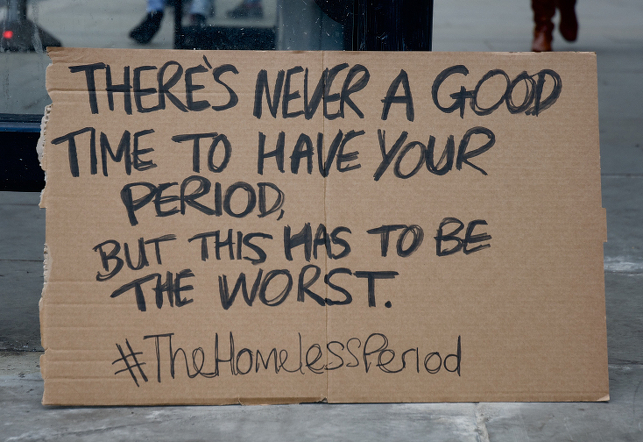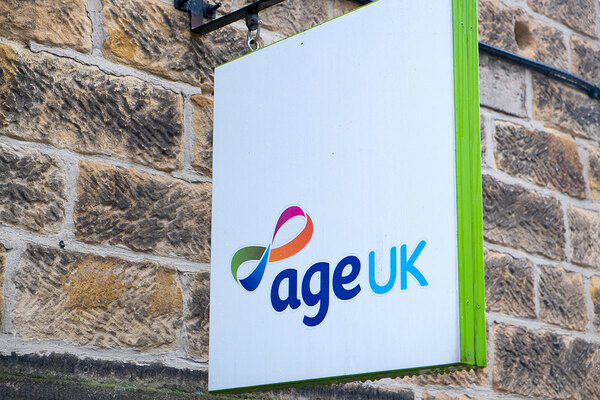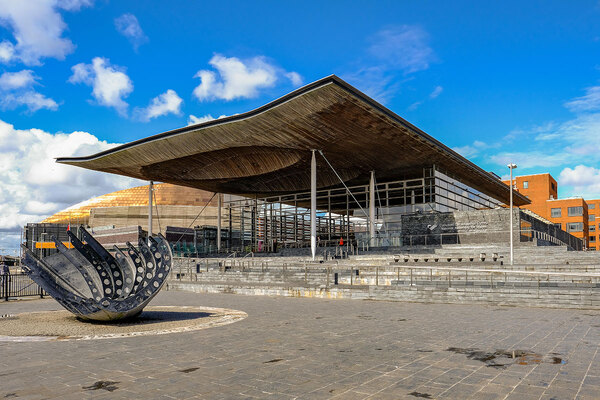You are viewing 1 of your 1 free articles

Forgotten women
The number of women sleeping rough has doubled over the past six years. Bill Randall argues more needs to done to cater for their needs.

Nothing personal, you understand, but I had little inclination to celebrate the recent birthday of a 90-year old woman who owns three palaces, two castles and a huge country estate and has a small servant army.
I am more concerned about the growing battalion of homeless women, not least the increasing number sleeping rough every night who have no home at all and little or nothing in the way of a support network. With an average death age of 43, they are unlikely to celebrate a 90th birthday.

There are only 59 women-only hostels in England.
All the evidence shows that women have been the greatest losers in the relentless assault on welfare and support since 2010. Some of them are having a very rough housing time. The number of women leaving prison for settled accommodation, for example, dropped from 95.5 per cent in 2014 to 83.7 per cent in 2015.
In London, tents and sleeping bags are routinely handed out to women leaving Bronzefield Prison in the face of the acute shortage of social housing and hostel places in the London and the South East and the frequent downgrading of ex-offenders into low priority bands.
These vulnerable ex-prisoners join the swelling ranks of homelessness in London where 7,581 people, about 1,000 of them women, slept rough at some point in 2014/15, more than double the number six years ago. The plight of homeless women is an issue for Sadiq Khan to consider when he’s setting his housing priorities.
To make matters worse, many homeless women are housed in totally inappropriate hostel accommodation. A recent health conference was told about a woman with learning difficulties who had her two children taken into care and was than placed in a hostel, which also housed chaotic men, among them sex-offenders.
“I can’t help feeling that they are not on this government’s diminishing list of the deserving poor.”
More than 50 per cent of mothers whose children are taken from them, by the way, have learning difficulties. Not enough support or housing is available to help them to keep their families together. I can’t help feeling that they are not on this government’s diminishing list of the deserving poor.
At the very least, these traumatised mothers and other homeless women should have a place of safety to go to, preferably a women-only hostel. However, these are very thin on the ground. Research by St Mungo’s confirms that while many women prefer to be housed with other women, there are only 59 specialist women-only projects in England.
The scarcity is a hangover from the days when hostel provision was informed by the public perception of street homelessness as a middle-aged man with a drink problem on a park bench. Indeed, I remember going to the St Mungo’s emergency hostel in the old Charing Cross Hospital building near Trafalgar Square in the 1980s, where the beds in the gloomy and echoing wards were filled entirely by homeless men.
At that time, there was little or no dedicated shelter for homeless women, apart from the Theatre Girls’ Club in Greek Street, Soho, which had long lost the smell of greasepaint and was housing of last resort for homeless women, and the House of St Barnabas hostel on the opposite side of the road
We’ve moved on since then. Perceptions of homelessness have changed. Mungo’s Charing Cross hostel closed years ago. The Theatre Girls’ Club was taken over and refurbished by Soho Housing Association, which is now redeveloping it to provide ten new flats – nine at discounted rents based on the average local working household income. St Barnabas is now a skills training centre.
St Mungo’s, to its great credit, has several women-only projects for clients aged 18 to 65, many of whom carry a portfolio of problems, among them mental health issues and alcohol and substance abuse. It works with many partners, including the National Zakat Foundation, a charity that houses homeless Muslim women in London and Birmingham and has plans for a third scheme in Manchester. Elsewhere, Brighton Housing Trust has one women-only house in its Route One scheme that provides housing with support for 53 adults with mental health problems.
Recently, the Director of the Brighton Women’s Centre, Lisa Dando, posed this question: “How does a homeless woman cope when she is menstruating?”
I would urge all local authorities and housing associations working with homeless people to contemplate this critical question and look again at their provision. If they are not already providing women only hostels, it should not be beyond their wit or budgets to reconfigure their services to have at least one safe and secure hostel for women.
Bill Randall is a board member of the Brighton Housing Trust and founding editor of Inside Housing









